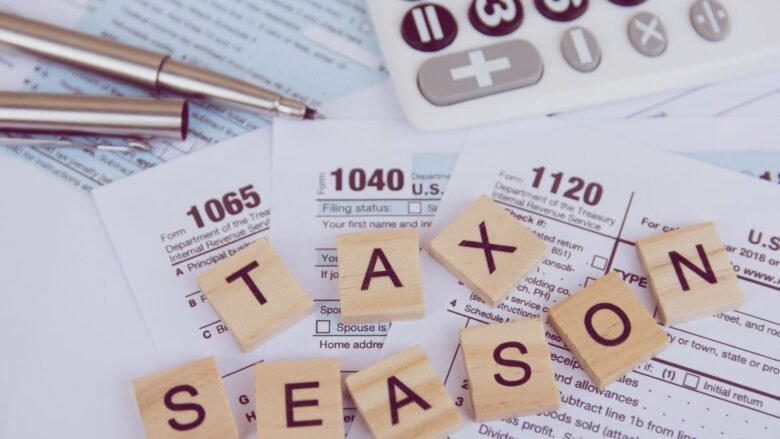Filing taxes for your small business requires extensive documentation. No matter whether it be sole proprietorship, partnership, S- or C-corporation or multi-member LLC; having detailed records of your transactions during the year can help lower taxable income and make tax season less taxing.
Utilize this downloadable checklist to make sure that all necessary documents are at hand when filing deadline day arrives, and stay abreast of local tax guidelines and filing due dates to avoid any unpleasant surprises.
Keep Track of Your Expenses
No matter the size or scope of your company or ventures from home, keeping track of expenses throughout the year can significantly lower your tax bill when filing time comes around. Gathering accurate information enables more precise tax preparation as well as greater eligibility for small business deductions.
Your accountant will need records of all the income your business generated, along with receipts for eligible expenses paid. This may include gross sales documented through cash register tapes, records of credit and debit card transactions or sales invoices; reimbursed expenses documented using 1099-MISC forms from suppliers; as well as capital expenditures such as purchase orders, bills of materials or parts records and receipts.
Additionally, you will need to bring details on all employees – payroll information and social security numbers of each worker is necessary – as well as yourself and any spouses or dependents (with their full legal names and social security numbers if applicable) along with assets owned by your business as of year-end, along with bank account records that reflect cash inflow and outflows.
Once compiled, you’ll need documents related to your deductibles such as health insurance and home office costs, investments and mortgage interest as well as any tax credits for which you might be eligible. Utilizing accounting or financial software throughout the year to keep an eye on these items will make filing taxes simpler when tax season arrives.
Make Estimated Quarterly Tax Payments
Meeting tax filing deadlines can become lost in the shuffle when running a small business, yet tardiness or failure to pay on time can have serious repercussions – leading to substantial penalties from the IRS.
As a small business owner, you may be required to make quarterly estimated tax payments based on the income your business generated throughout the year. These are designed to spread out your tax liability rather than having all payments due at once. Therefore it’s crucial that accurate records be kept of earnings and expenses (including those which qualify as tax deductible expenses ) in order to accurately calculate these estimated payments.
Apart from maintaining itemized records of your taxable business income, you will also require documents showing all cash inflows and outflows, such as register tapes, receipt books, 1099-MISC forms. Outflows should include purchases made by your business with details regarding purchases such as items purchased, their costs and their dates of occurrence. Furthermore, accounting journals or ledgers providing detailed records of your transactions throughout the year should also be maintained.
As well as federal quarterly estimated taxes, you may also be required to pay state and local income or franchise taxes, sales/use taxes, gross receipt taxes and employment taxes (if your business employs people). Please reach out to your Secretary of State for specific instructions on paying these taxes.
File Your Taxes on Time
Filing taxes for small business owners can seem like a monumental challenge, but with proper preparation you can ease this task and avoid penalties while filing accurately. Here are a few key preparation tips to help ease the burden.
As part of your preparations for tax season, begin by reviewing and analyzing your company’s bookkeeping. Accurate records make calculating taxable income easier while finding deductions you might otherwise miss – saving time when filing taxes as well as decreasing the likelihood that an audit from the IRS occurs.
Start by documenting and categorizing every business transaction using accounting software or an Excel spreadsheet. Be sure to include information such as amount, description of expense and date when recording each business expense incurred – utilities, marketing costs or home office costs may all qualify as deductions if directly related to your business activities.
At year-end, you should also reconcile credit card and vendor account balances to ensure all transactions on your books match those shown on statements from banks or vendors.
Contact the IRS
Filing taxes can be one of the greatest challenges that small business owners must navigate each year, and working with a professional accountant or tax specialist to reduce mistakes that lead to penalties and missed deductions can help alleviate some of this stress.
An excellent accountant should work closely with their clients throughout the year, not just at tax time. In this way, they can monitor income and expenses, gross and net profits, issues or opportunities and inform you as appropriate – to maximize deductions, pay the appropriate tax amount and comply with IRS guidelines.
Your tax preparer will require all of your financial documents, such as your business income statement and expense receipts. Be sure to organize these by type and date so they’re easy to locate when filing taxes. Using bookkeeping software connected to bank accounts can also simplify this process by automatically updating transactions and decreasing risk of missing important details.
Filing forms will depend on your business structure. Sole proprietors file Schedule C along with their individual tax return; partnerships and multimember LLCs file Form 1065 and issue Schedule K-1s to partners. If you need guidance or recommendations about which forms apply to your situation, an accountant or tax preparer should be able to offer guidance or provide necessary forms.




